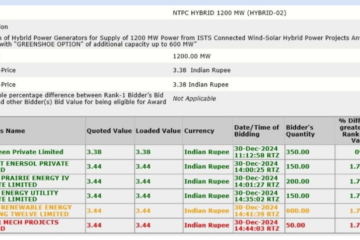Attracting investments in Li IOn battery manufacturing
The demand for lithium-ion batteries is rapidly increasing as they become a crucial component in electric vehicles, energy storage systems, and other electronics. With India’s ambitious plans to transition towards electric mobility and renewable energy, there is a huge potential for investment in lithium-ion battery manufacturing. However, to facilitate investments in this sector, India needs to focus on developing policies and regulatory frameworks that make it easier for foreign investors to establish and operate their businesses in the country. In this article, we will discuss how India can facilitate investments in lithium-ion batteries.
- Investment Promotion Agencies: India needs to establish investment promotion agencies that can attract foreign investors to invest in the lithium-ion battery sector. These agencies can provide information about investment opportunities, incentives, and regulatory frameworks to foreign investors. These agencies can also act as a single window clearance system, streamlining the approval process for investors.
- Coordination Bodies: India should establish coordination bodies that can facilitate collaboration between industry, academia, and the government. These bodies can identify challenges to investment and work towards developing solutions. They can also create a platform for knowledge sharing and technology transfer, which can enhance the competitiveness of the Indian lithium-ion battery industry.
- Incentives: India should provide incentives such as tax breaks, subsidies, and land grants to attract foreign investors. These incentives can reduce the cost of setting up and operating a lithium-ion battery manufacturing facility in India. India can also explore the possibility of offering a special economic zone for lithium-ion battery manufacturing.
- Research and Development: India should invest in research and development to develop new and innovative technologies for the manufacturing of lithium-ion batteries. The government should provide funding for research institutions and universities to carry out research in this field. The government can also provide incentives to companies that invest in research and development.
- Skilled Workforce: India needs to develop a skilled workforce that can support the growth of the lithium-ion battery industry. The government should focus on developing vocational training programs that can train workers in the skills required for the manufacturing of lithium-ion batteries.
- Regulatory Framework: India should develop a regulatory framework that is conducive to the growth of the lithium-ion battery industry. The government should ensure that regulations related to land acquisition, environmental clearance, and labor laws are investor-friendly.
In conclusion, India has a huge potential to become a global leader in the lithium-ion battery manufacturing industry. However, to attract foreign investors, India needs to develop policies and regulatory frameworks that are investor-friendly. Investment promotion agencies, coordination bodies, incentives, research and development, skilled workforce, and a conducive regulatory framework are some of the key factors that can facilitate investments in the lithium-ion battery sector. By focusing on these factors, India can attract foreign investment, create jobs, and boost economic growth.
